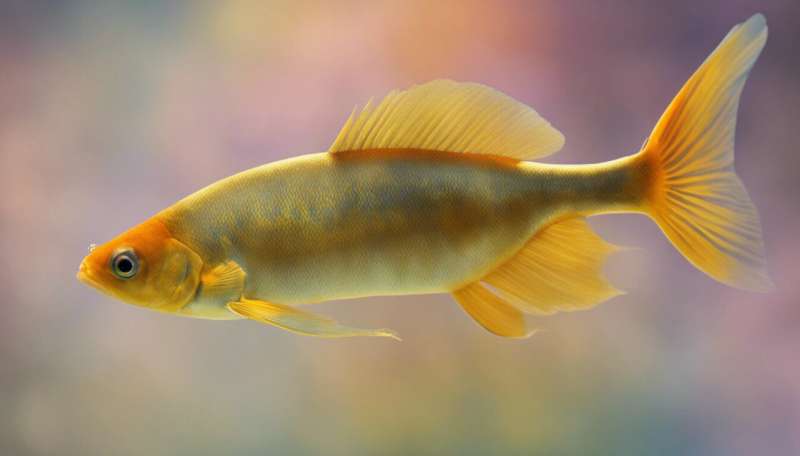Fish show cheating can be better than playing by the rules in the mating game

The males of some species go to extraordinary lengths to attract females – but some simply cheat. Take African cichlid fish. Many males build underwater "sandcastle" structures that the females use to judge the quality of their potential mates. But, as my colleagues and I found out during a recent study, some males don't bother with this show of construction prowess, and instead are able to father offspring by engaging in "sneaky mating".
There are hundreds of species of colourful cichlid fish in Lake Malawi, Africa, and about two hundred of these build pit- or volcano-shaped structures known as "bowers" out of sand. Each species builds a slightly different type of sand bower, and they function as a signal of male quality, both to other males, and to females.
The females are what are known as mouthbrooders. After courtship with their male partners, which takes place on top of the bower, the females lay eggs and pick them up in their mouths. The males then fertilise the eggs while they are still in the females' mouths.
The females then carry the eggs for about three weeks until they hatch into baby fish known as "fry". The male contributes no parental care, nothing but his genetic material. So the females need to ensure they choose high quality males, and they use the shape of his bower to do this.
The males even help the females to do this by congregating in breeding arenas called "leks". The females can then visit a lek and judge a large number of males at once, usually laying only a handful of eggs with each chosen male. The ability to build and defend a bower in this hotbed of male activity is thought to demonstrate the quality of the male to the females. It takes two to three weeks for each male to build his bower and he has to work hard to maintain it over a breeding season of several weeks.
No bower needed
But we wondered whether there was another way that male cichlids could father offspring without building a bower. Trying to find this out in the wild would be very difficult, so we recreated a mini-version of their habitat for a breeding population of fish in our aquarium system in Hull. We then implanted tiny tracking microchips into the fish, similar to those often implanted into pets, and allowed the males to form a lek in a large tropical pond.
We also put microchip readers on to the bowers as they were built so we would know which males had built and were defending a bower and which weren't. We then waited until a number of females were brooding and then DNA paternity-tested their offspring to find out which males had been most successful.
We found that bower-owning males were considerably more successful than non-bower owning ones, which makes evolutionary sense given the considerable effort and investment it requires. But a small number of non-bower holding males still fathered offspring, showing that an alternative strategy can be successful. Male cichlids spend a lot of time chasing away rivals. This suggests that some non-territorial males attempt to sneak past the bower holders and distract the females, persuading them to hedge their bets and mate again.
There's still a lot we don't know about these fish. How did so many species evolve in such a short evolutionary time scale? What is the genetic basis for their behaviour? What determines female preference and why? How do changes in the environment affect their ability to attract mates?
Studying these questions provides a wider insight into the evolution of complex behaviours and the way that female choice can shape evolution. Males who build impressive sandcastles are favoured by females, and this has driven their evolution. But it's possible that being sneaky could also be a viable strategy for evolutionary success.
Provided by The Conversation
This article was originally published on The Conversation. Read the original article.![]()




















